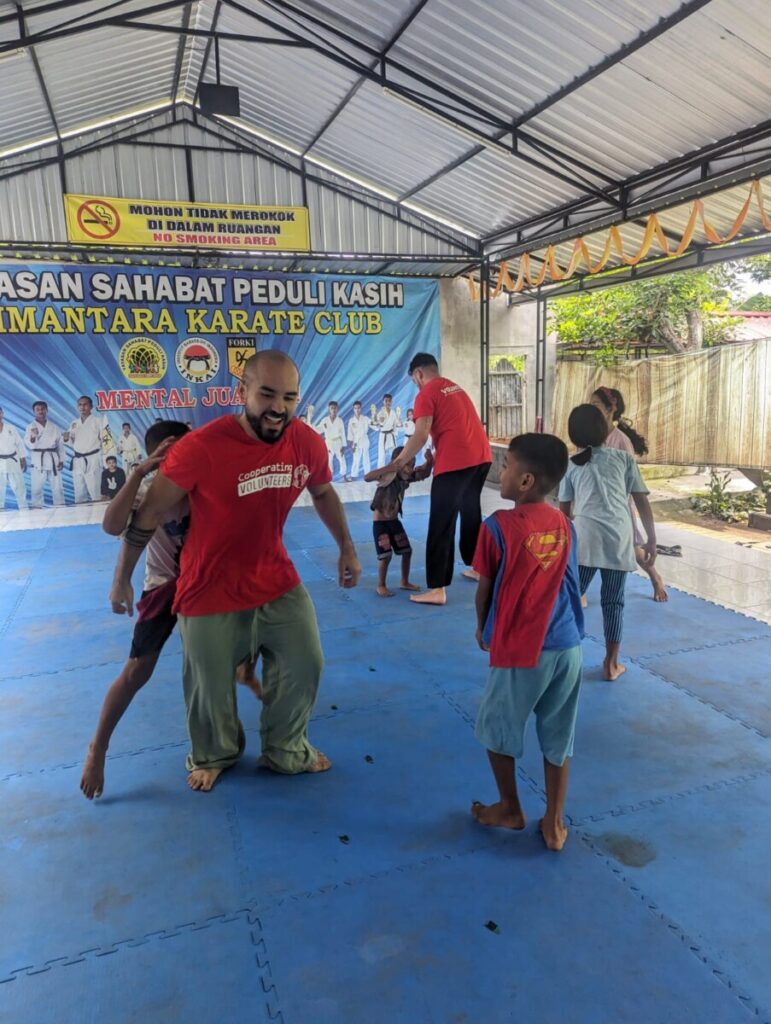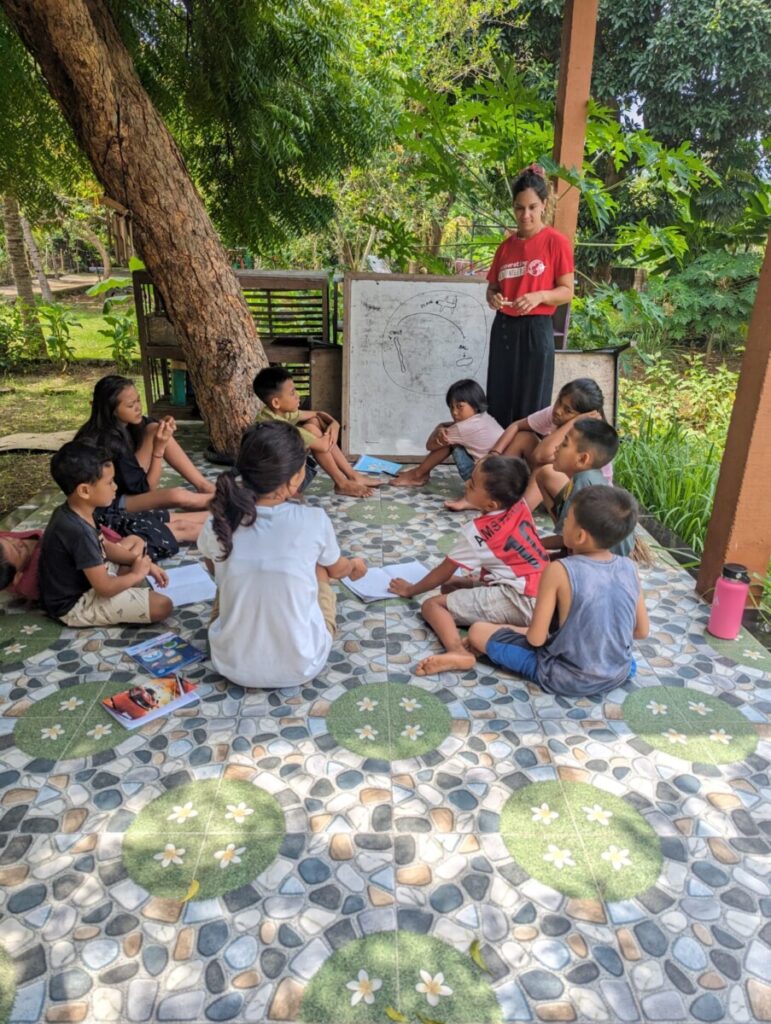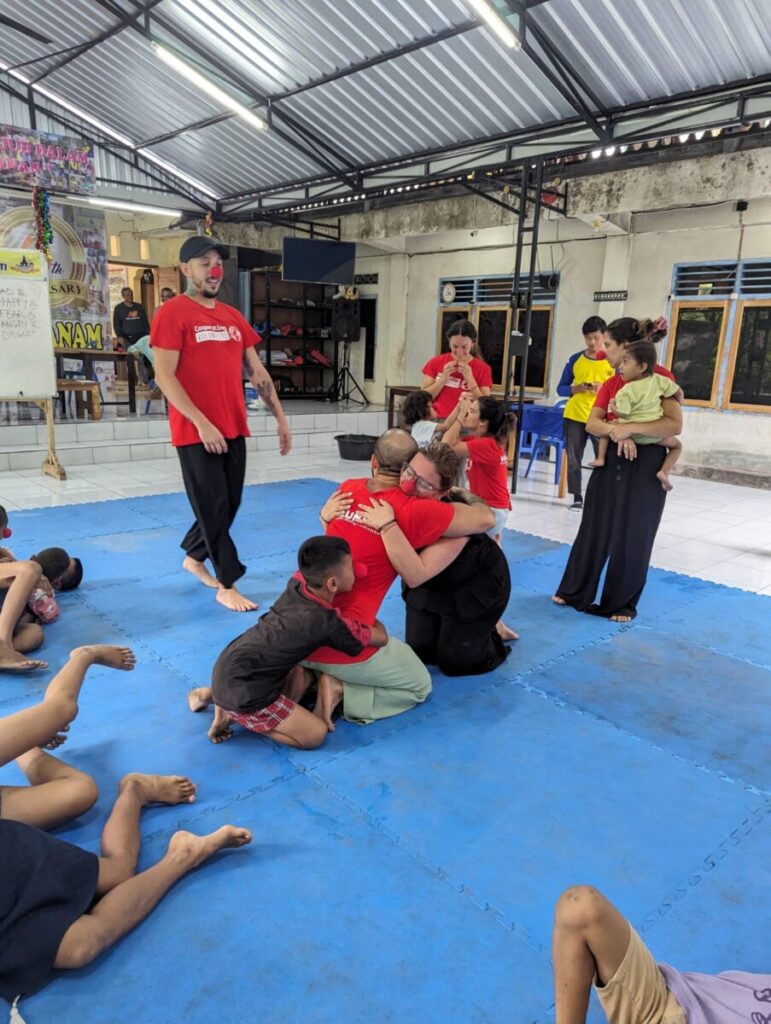Menu Apply

Bali, known as ‘the island of gods’, is an Indonesian island located in the Malay archipelago. This is the world’s largest archipelago, comprising over 25,000 islands belonging to different Asian countries.
The highest point on this volcanic island is Mount Agung: a volcano with a steep northern slope and a gentler southern slope which descends into a flood plain, marking a diverse geography of idyllic beaches, rice terraces and coral reefs.
Just like the neighbouring island of Java, Bali is known around the world for its music, sculptures, paintings and traditional techniques of goldsmithing and leather goods production.
The island’s temperature always stays between 25 and 30ºC. May, June and September are the best months to visit the island, as this is when the weather is better (lower humidity and better conditions for diving) and there are fewer tourists. January-April, October and November are the wettest months. During these periods, visitors can enjoy all of Bali’s tourist activities apart from the volcano excursions.

Bali, Indonesia, is in the Central Indonesia Time Zone (UTC+8) and does not observe Daylight Saving Time.

The official currency in Bali is the Indonesian rupiah (IDR). 1 euro equates to 14,455 Indonesian rupiahs.

In Buleleng, an area popularly known as Lovina Beach.

The stay begins as soon as the volunteer is picked up at the destination.

The stipulated pick-up times for each destination/project must be respected. Volunteers who arrive outside of this time frame will have to pay an additional cost, depending on the destination.



In Buleleng, an area popularly known as Lovina Beach.
For the Lovina Beach Programs, Buleleng: Volunteers should arrive at Ngurah Rai Airport (DPS) on Friday, where they will be picked up by local staff and then transported to Buleleng for their orientation.
Just as with most Asian countries, you will find rice in almost every dish. Pasta, particularly noodles, is another staple of local cuisine. We also recommend tasting the exquisite vegetable soups.
While you’re sure to notice the strong flavours of traditional Bali dishes, aesthetics also play an important role. Another characteristic of Bali’s cuisine is the care and attention that locals pour into the presentation of their dishes.
Bali is also famous for its wide range of delicious exotic fruits. These are always a hit with visitors, as many of these fruits are rarely found in the west. A good way to sample the flavours is by tasting some natural juices.
To get around the island, public transportation can be inadequate due to the lack of good infrastructure. For long distances, it’s best to use private transportation: bus tours or renting a chauffeured taxi, always agreeing on the route and price beforehand.
For day-to-day travel, volunteers can use “Bemos,” which are mini-vans that operate frequently for short distances. They are quite different from the Western concept of vans as they tend to be crowded and lack air conditioning. Another alternative for daily transportation is “dokar,” which are traditional horse-drawn carts.
Volunteer programs in Bali start every Monday.
Volunteers must arrive in Bali on the Friday before the program start date to be picked up at the airport.
Volunteers must arrive in Bali on Fridays between 00:00 and 23:59 hours
Volunteers can participate in the volunteer program for a minimum of 1 week and a maximum of 6 months.
Bali has three main tourist attractions: its coastline, its inland natural areas and its temples.
Bali is unquestionably known around the world for its series of idyllic beaches, ranging from extensive and busy beaches, such as Kuta; snorkelling beaches, such as Sanur; and smaller and more secluded beaches, such as Soka.
The city of Ubud is one of the island’s most visited locations. Located in inland Bali, this city lies on the slopes that lead up to the Bali’s inland mountains. This city is popular with tourists because of its laid-back vibes, the tranquillity transmitted by its culture and the natural lines of its green slopes.
For lovers of history written in stone, the island of Bali is home to 10,000 temples. For local people, these temples are more than just a place of worship. Rather, they are also used for meetings, social gatherings and cultural purposes.
A perfect mixture of culture and nature.
The objective of the project is to train young people to become social leaders. Volunteers reside in a multicultural environment, collaborate as a team to execute tasks or institutional projects, accompany beneficiaries in their daily lives or during workshops, and assist with the needs of the centers and homes.
Social Inclusion of children, young people and grandparents in situations of social risk.
Attention to Centers and Homes for the protection and restitution of rights of socially vulnerable children, adolescents and older adults.
Project participants will work alongside community members, engaging with various social actors to ensure that the project benefits everyone and respects the rights of all individuals.
The same foundation that runs the Turtle and Conservation Program is also dedicated to other aspects of the well-being of the local community where they are located.
One of their projects is to offer rehabilitation and physiotherapy services to residents of the area. Professionals and students in the healthcare field with expertise in these areas can join the local team to improve the physical conditions of patients. One of the problems the foundation faces due to a lack of personnel is the lack of time and professionals who can dedicate themselves to offering rehabilitation to people, so volunteers are ideal to fill the personnel shortage they suffer. Patients will be treated and, at the same time, they can also be taught exercises to practice on their own and continue with rehabilitation once the volunteer is no longer at the center.
Additionally, they distribute wheelchairs free of charge to people with reduced mobility throughout Indonesia. Therefore, they have a workshop where they manufacture and repair wheelchairs.
If the volunteer is interested, they can always lend a hand in the workshop and help repair the chairs.
Requirements
IMPORTANT: It involves approximately 3-4 hours of work per day.
This project is carried out by a local foundation that acts as a community social center.
It is a registered community organization located in Singaraja, the capital of the Buleleng regency, in the northern coastal area of Bali.
The foundation has created a daily program of visits and food distribution to families at risk of social exclusion, mainly supporting people living in rural villages. In addition, depending on the need, they also distribute cash checks, provide health care or sponsor the education of children from these families.
Beyond these daily tasks, English classes are also taught to the children of the community at their center. It is a Social Center made up of young people and their families, full of enthusiasm and energy to carry out new activities and improve those that are already being carried out.
Through this program, volunteers come into direct contact with the local community, both with the foundation’s own team, who make the volunteer feel like another cog in their gear, and with the families they support. While distributing food, volunteers can talk to the families and observe the environment in which they live, their way of life and their customs.
Requirements
It involves approximately 3-4 hours of work per day
This program takes place in different children’s homes and educational centers, where the ages range from 2 or 3 years old to adolescence.
If the volunteer collaborates in an orphanage or children’s home, they should know that, due to the living conditions to which they have been subjected, many of the children are very independent in their daily tasks, but that does not mean that they do not need or value external attention and help.
The volunteer will help the children when they return from school with their homework, teach them English and with their responsibilities, such as cleaning spaces, cooking or helping with the organic farming activities they carry out.
In addition, they will be able to play with them and organize various activities such as crafts, dances, songs and even join the yoga and meditation practice they do daily. Apart from these activities, the children will appreciate the quality time and love that the volunteer dedicates to them, a peaceful environment where they feel comfortable and safe is the best that can be offered to them.
When the volunteer joins daycare centers, the main functions will be to care for the children and introduce them to the teaching of English and other basic knowledge, such as hygiene, emotions or psychomotor skills.
There is also time for games and more fun activities such as dances, music or various crafts.
Volunteers who participate in primary or secondary education centers will be able to assist teachers with subjects such as English, computer science, physical education and any discipline in which the volunteer has knowledge.
In addition to classes, the volunteer will be with them during their breaks and will be able to interact with the students in a more relaxed way, promoting cultural exchange and knowledge of their world.
Requirements
IMPORTANT: it involves approximately 3-4 hours of work per day.
Volunteers are accommodated in a volunteer house near an orphanage with which we work in the Buleleng area. Located on the northern coastal region of Bali, life in this small village offers an authentic local experience and provides an opportunity to witness traditional Balinese life.
The house is simple but includes amenities such as: European-style bathroom, shower, fans, kitchen, dining area, and garden. Rooms are shared among 4-6 people of the same gender.
The residence is close to the beach, allowing volunteers to enjoy their free time with water activities.
Additionally, within the orphanage grounds, there are several wooden cabins available for volunteers who come as a couple or prefer more privacy. Some cabins have private bathrooms, while others have shared facilities.
Meals are vegetarian and are served at the orphanage.
Indonesian food is flavorful and diverse, so you will experience a wide range of tastes and dishes during your stay. Typical dishes include Mie Goreng (fried noodles and vegetables), Nasi Goreng (fried rice and vegetables), and Gado Gado (mixed vegetables with satay sauce). Indonesian cuisine often features tofu and tempeh (soy products), though there are also some Western dishes available.
Breakfasts are varied and usually include vegetables, toast, jam, fruit, and tea or coffee. At lunch, you will find rice, noodles, gado gado, and other local dishes. Dinner typically consists of rice with vegetables or tofu, tempeh, and a variety of other dishes. We do not recommend drinking tap water.
The volunteer house has only one bathroom and one shower, so you will need to take turns using them. In front of the house is the facility of one of the orphanages we collaborate with, which also has several bathrooms and showers available for volunteers.
Toilet paper and water bottles are an extra cost that volunteers will need to cover on-site.
The total cost of the volunteer program is divided into two parts. The registration fee, which is paid to book your placement in the program, costs 210 euros, while the program cost is paid at a later date.
280€ per week
The Community Social Center Volunteer Program has an additional cost of 50€ per week.
Visa, flights, travel insurance (obligatory), vaccines, return to the airport, bottled water, daily commute fees and other personal expenses.
(*** Volunteers in Bali will generally find that €20 (approx. 25 USD) is enough to cover basic weekly expenses, and that around €3-5 per day on weekends is enough to cover meals in the establishments close to the accommodation.)
| Address: | New York, United States |
| Address: | Avinguda Carrilet, 3, Edifici D, planta 2a, 08902 L’Hospitalet de Llobregat (Barcelona) |
| Phone: | +34 931 890 904 - Office- Barcelona |
| Email: | hello@cooperatingvolunteers.com |
| WhatsApp: | +34 671 94 28 89 |

Cooperating Volunteers, S.L. All rights reserved © 2014
Leave us your information and we will contact you within the next 24 hours
Our volunteers will be able to validate university credits with the aim of traveling in a more responsible and economical way.
What does volunteering focused on university practices involve?
At Cooperating Volunteers, we make agreements with different universities to validate university credits with the aim of traveling in a more responsible and economical way.
The specialties we work with are extensive: medical volunteering, nursing, education, social work, psychology, physiotherapy, engineering, architecture…
The practices can be carried out in our designated destinations for this purpose, as well as in Spain.
If you choose an international destination, it’s a unique way to live an unforgettable and enriching experience, as you will have the opportunity to continue your education in another country, with a completely different culture.
Stepping out of our comfort zone and being part of the various projects at the destination will allow us to grow both personally and professionally, creating a more extensive curriculum.
And we are fully convinced that this experience will accompany you throughout your life.
You will be able to visit hospitals, schools, centers, orphanages, and participate directly and actively in the daily lives of all those people at the destination, always accompanied by other professionals willing to collaborate hand in hand with you and guide you in daily tasks.
If your university is not part of the agreement with Cooperating Volunteers, you can contact cristina@cooperatingvolunteers.com so that we can get in touch and make this experience a reality.
Corporate volunteering consists of tailored programs for your company, designed to develop teamwork skills.
It is proven that teamwork directly impacts productivity.
Collective effort surpasses individual capabilities, promotes diversity of skills, stimulates creativity, and facilitates problem-solving in the face of various challenges.
Therefore, it not only maximizes efficiency but also enriches the work environment.
We conduct corporate volunteering programs that consist of customized programs for your company, designed to develop teamwork skills, improve performance, and foster unity among employees.
We tailor projects to the corporate identity and size of the company, and we can adjust them to any destination and time of the year.
The advantages of corporate volunteering include:
The future is aligned with a more responsible society, and participating in social projects positions our company among the list of revolutionary businesses that want to be part of the change.
If you resonate with this message, corporate volunteering is a unique experience both individually and collectively, and at Cooperating Volunteers, we accompany you throughout the process to make it a unique journey.
Quality time spent with family strengthens emotional bonds, promotes communication, and contributes to the emotional well-being of its members.
Spending quality time with family and being able to disconnect from our hectic routines is not only enriching but also necessary.
Sometimes we forget to communicate, connect, and dedicate time to each other. Each one of us lives focused on our jobs, schools… And it’s necessary to find the opportunity to pause and take care of ourselves.
Quality time spent with family strengthens emotional bonds, promotes communication, and contributes to the emotional well-being of its members. And of course, it creates lifelong positive memories.
At Cooperating Volunteers, we suggest moving away from those ‘more superficial’ trips (which can also be fantastic), but we invite you to live this experience to bring out our most empathetic and humanitarian side.
Family volunteering gives us the opportunity to be part of a positive impact, promoting values of solidarity and social responsibility.
There are many families who choose to experience these trips focused on cooperation and direct involvement with different communities around the world, where living conditions are very different and sometimes entirely precarious.
Projects are tailored to different ages, allowing us to work together.
An incredible way to fill our suitcase with memories, learning, and knowledge.
And although stepping out of our comfort zone often feels daunting, we assure you firsthand that it’s worth it.
At Cooperating Volunteers, we accompany you throughout the entire experience, from start to finish, to make it unforgettable.
At Cooperating Volunteers, we believe it’s never too late for anything, especially for volunteering and living a unique and unforgettable experience.
There are many people, increasingly so, who opt for responsible travel that involves social work.
Accustomed to organized and mostly touristic trips, at Cooperating Volunteers, we want to advocate for a more enriching experience, one that transforms us from within and allows us to be part of the change the world needs to see.
We can adapt both the destination and the duration of our projects to fit your needs.
It’s an opportunity full of emotions that allows us to significantly contribute to different communities and their evolution. And you can participate in different areas such as education, social support, or assistance in different centers.
Some of the benefits include:
Living this experience will undoubtedly be a before and after.
A volunteering initiative with leadership and impact through the educational action program.
When we talk about social volunteering, we refer to all those actions and activities carried out altruistically, selflessly, and with the aim of addressing multiple problems and needs of different communities, always focused on education and self-sufficiency.
Education is essential because it provides the tools and knowledge necessary for personal, social, and economic development.
Our goal is to create self-sufficient communities and provide opportunities for the future personal development of each member. The message is not to ‘give’, but to accompany in the process of training for self-managed provision.
At Cooperating Volunteers, many of our destinations and projects embrace this type of volunteering. Some of our projects include: community programs, education, women’s empowerment…
And although they are completely different from each other, they share a single objective: progress towards a society that can embrace us all in the same way.
If you are someone who is restless, who needs to see a change in the future, volunteering is an experience tailor-made for you.

